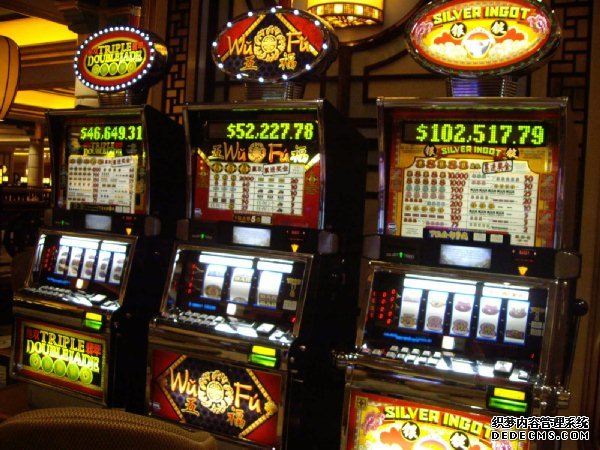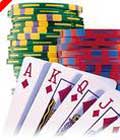金融危机冲击内达华州的博彩业
金融危机使人们的生活更加困难。内华达州的失业率在今年5月已攀升至14%,远远高于全国9.7%的平均水平并创下了历史新高。 2008年赌场度假村提供的就业岗位仅有16%,比1994年的高峰时期少了近七个百分点。州已经努力向多元化发展,但博彩旅游业仍然是该州经济的重要组成部分。在过去两年博彩收益的下降已经影响到内华达州以及其他各州。
长时期的经济危机严重冲击了当地的博彩业。在2004年,游客人数比酒店客房数量增长更迅速。于是,米高梅公司宣布计划在城市中心建立一个大规模的公寓楼群以满足不断增长的市场需求。该项目的成本最初估算约为30亿美元,可最后该成本预算却上升到约90亿美元。该项目于去年12月动工,预备为该城市增加4800酒店客房。但到2009年底,游客数量由上年下降了3%,但酒店客房数量却增长6%,酒店客房入住率严重下降。同样惊人的是,内华达州整体的赌博利润收入下降了10%以上,这是该州有史以来下降跌幅最大的一年。
造成这一情况,很大程度上因为经济形势广泛地萎靡不振,尤其伴随着经济衰退,消费支出下降也严重下降。但赌场行业的激烈竞争亦是重要原因之一。 1987年,最高法院裁定,允许美国土著部落开设赌博活动。次年,美国国会通过的印度博彩监管法,为这样一个行业制定了一个监管框架。
今天,在美国28个州中有200多个部族经营赌场,包括内华达州和加州(为拉斯维加斯提供了许多游客)的赌场。美国最大的赌场是Foxwoods,由西部的康涅狄格Meshantucket Pequot部族经营。MoheganSun赌场是Mohegans家族经营管理。很多赌徒每天从纽约驱车两小时到这两个赌场投注。
加利福尼亚州的Pechanga和Temecula赌场度假村,位于洛杉矶和圣迭戈之间,离拉斯维加斯城较远。2008年印度赌场的博彩收入约为270亿美元,比上一年增长1.5%,而拉斯维加斯却在下跌。
除了这种直接的竞争以外,也有规模较小的竞争对手。大约15个州拥有“赌马”,老虎机游戏,以及视频扑克,二十一点或骰子等赌博游戏,这些已经成为最流行的电脑桌面赌博游戏。联邦禁止内达华州体育博彩的禁令开始失效:特拉华州没有获得体育博彩经营权,但仍然保留采取多个专业的足球比赛投注的权利。新泽西州参议院小组最近通过一项新法案,允许大西洋城开设体育博彩业务。
然而,这似乎可能会损害到拉斯维加斯的博彩收益。事实上,大多数人去那里并不只是为了赌博:2009年,只有13%的游客在第一时间表示到拉斯维加斯赌博是他们的主要目的。有2%的表示,他们是来看望朋友或家人,或度假的。
译文:
The financial crisis has done its bit to make life harder. In May this year Nevada’s unemployment rate had climbed to 14%, the highest in any state and far above the national average of 9.7%. In 2008 hotel-casinos provided only 16% of the state’s jobs-nearly seven percentage points fewer than at the peak, in 1994. The state has tried hard to diversify, but gaming and tourism remain a big part of the economy, so the drop in consumer spending in the past two years has affected Nevada more than most other states.
The crisis hit at the end of a long period when visitor numbers were growing faster than the number of hotel rooms. In 2004 MGM Mirage announced plans for a massive complex on the Strip, CityCenter, to cash in on rising demand. The cost rose from an initial estimate of around $3 billion to over $9 billion. It opened in December last year, adding 4,800 hotel rooms to a city already struggling to fill the rooms it had. By the end of 2009 the number of visitors was down 3% from the previous year but room numbers were up 6%, slashing the occupancy rate. Equally alarming, gambling revenues in Nevada as a whole fell by over 10%, the state’s steepest-ever annual decline.
Much of this is due to the broader economic malaise, in particular the drop in consumer spending that accompanied the recession. But competition is also to blame. In 1987 the Supreme Court ruled that Native American tribes could establish gambling operations on tribal lands even if those lands lay within states that prohibit gambling. The following year Congress passed the Indian Gaming Regulatory Act, which created a framework of regulation for such businesses.
Today more than 200 tribes run casinos in 28 states, including Nevada and California (which supplies many of the visitors to Las Vegas)。 The biggest casino in America is Foxwoods, run by the Meshantucket Pequot tribe in western Connecticut; that and the Mohegan Sun casino, run by the Mohegans in Connecticut, are both around two hours’ drive from New York, and much of their business comes from day punters. The Pechanga Resort and Casino in Temecula, California, between Los Angeles and San Diego, is closer to both than is Las Vegas. In 2008 gaming revenue at Indian casinos was about $27 billion, a 1.5% rise on the previous year, whereas Las Vegas saw a drop. Proximity seems to make a difference.
In addition to this direct competition there are smaller foes, too. Around 15 states have “racinos”, or slots parlours attached to race tracks; and many of them offer video poker, blackjack or craps, which are computer-based versions of popular table games. The federal ban on sports betting outside Nevada is beginning to crumble at the edges: Delaware lost its appeal to allow sports betting but retains the right to take bets on multiple professional football games, and a New Jersey state-senate panel recently approved legislation to allow sports betting in Atlantic City.
Yet none of this may be as damaging to Las Vegas as it appears. For one thing, most people do not go there just to gamble: in 2009, only 13% of all visitors and a mere 2% of first-time ones said gambling was their primary purpose for visiting-fewer than said they were coming to see friends or family, or for a holiday.
- 上一篇:对于百家乐游戏的简介
- 下一篇:如何成为一个百家乐游戏专业人才?
相关推荐
随机专题



 您现在的位置:
您现在的位置: 
 如何靠记忆牌九配牌?这方法必须学!
如何靠记忆牌九配牌?这方法必须学! 二十一点怎么玩?
二十一点怎么玩? 掌握德州扑克技巧三大要点快速赚钱
掌握德州扑克技巧三大要点快速赚钱 棋牌游戏黄金城现金梭哈牌面大小
棋牌游戏黄金城现金梭哈牌面大小


